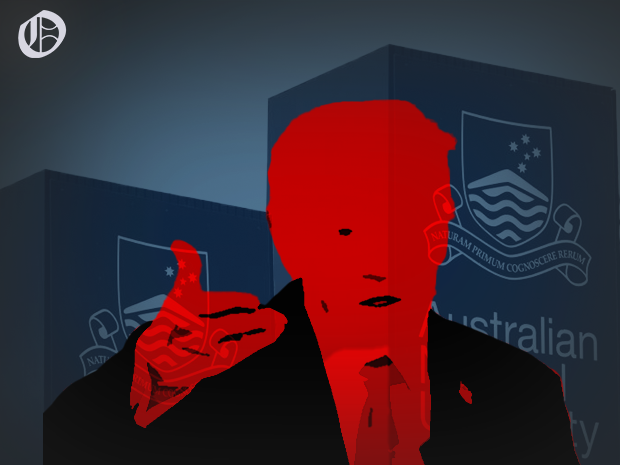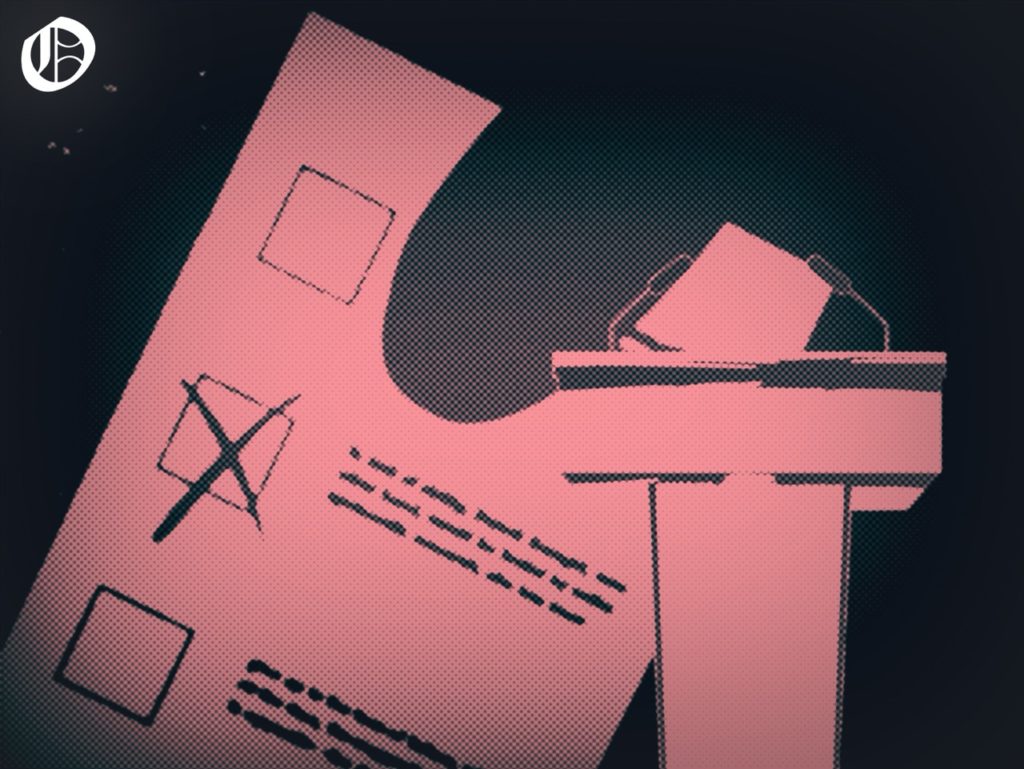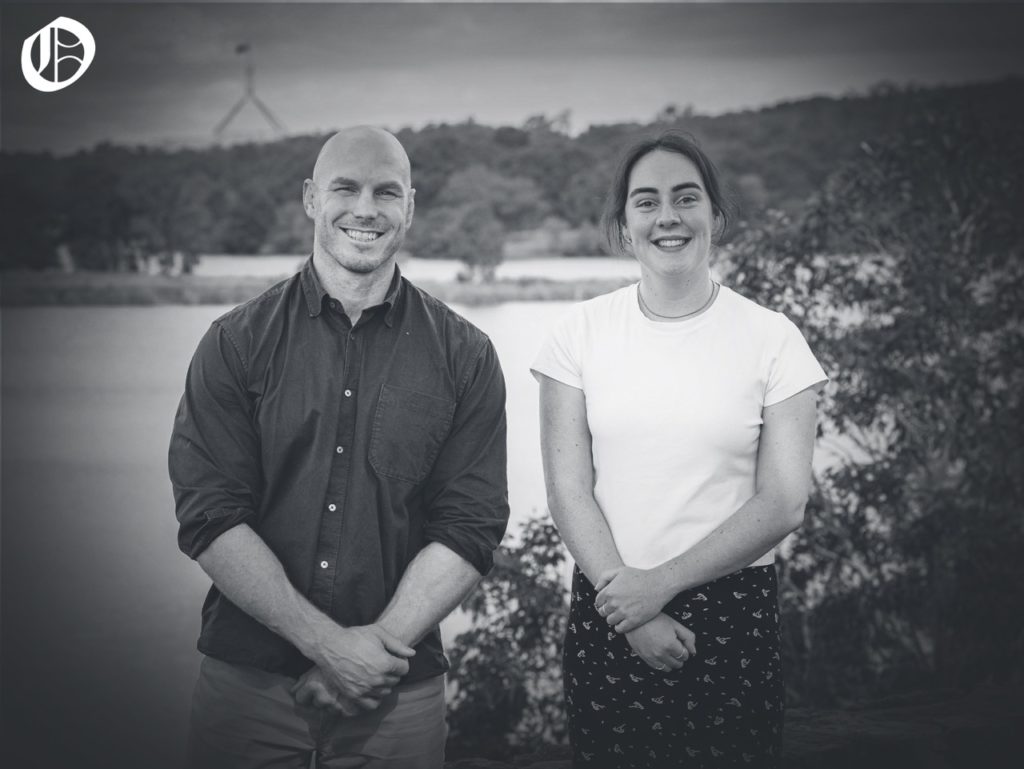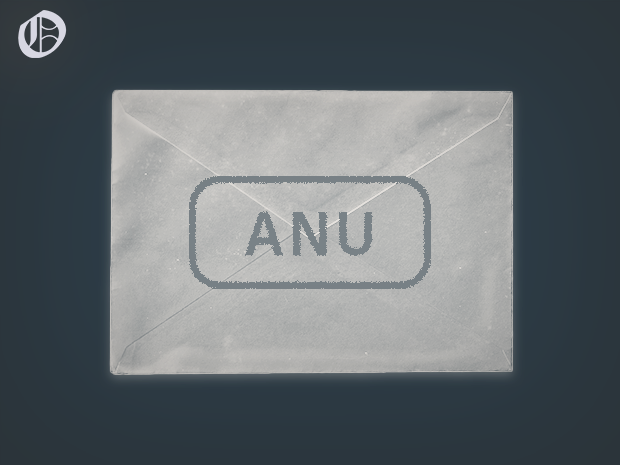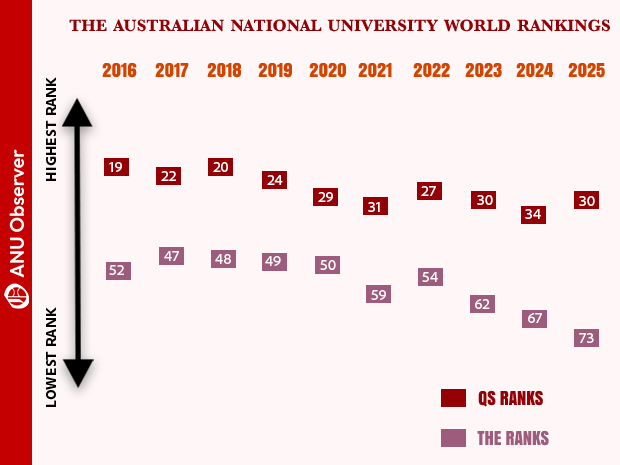In Conversation with Observer: David Pocock up for Re-election with ANU Student as Running Mate
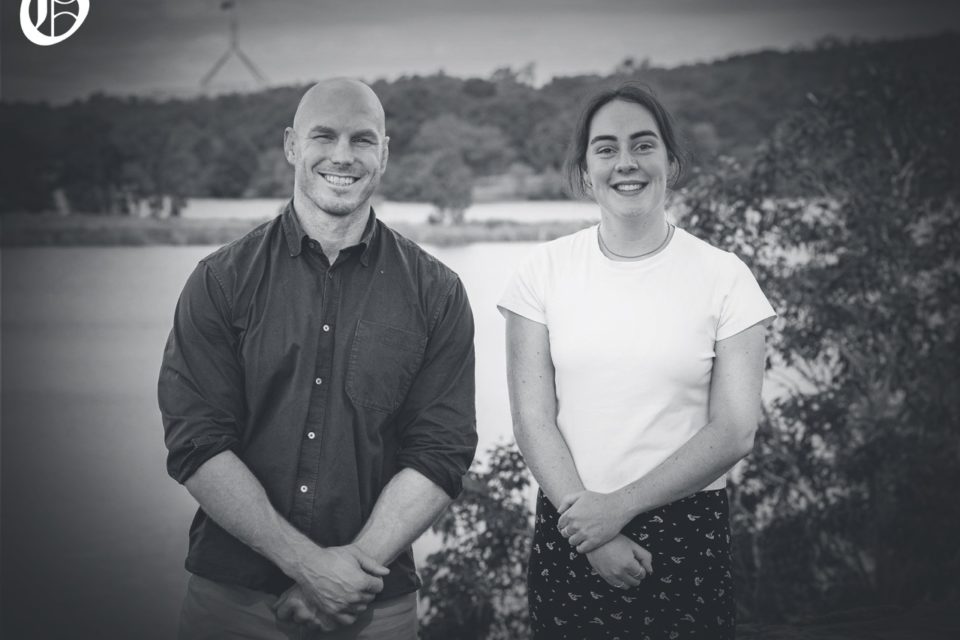
Written by Finn Slattery-O’Brien and Angela Paulson
Additional Reporting by Mackenzie Watkins
On Tuesday 15 April, Observer sat down with ACT Independent Senator David Pocock and his running mate Hannah Vardy at their campaign office in Pialligo.
Senator Pocock is a former Australian professional rugby union player and conservationist, who became the first Independent Senator for the ACT following the 2022 federal election.
For the 2024 federal election, Pocock has announced he is running for a second term with Hannah Vardy. Technically, both Pocock and Vardy are candidates for the “David Pocock” political party. This is as registering as a political party rather then running as an independent allows candidates to get “above the line” and become more visible on the ballot. As part of this, Pocock is thus required to run a second candidate – with Hannah kindly agreeing to be his running mate this election (Clare Doube was his running mate in 2022).
On top of being a current fourth-year ANU law and science student, Vardy is also a research assistant, an advocate for the Duty of Care campaign, and has been working within Senator Pocock’s electorate office.
Observer talked to Pocock and Vardy about their views on political polarisation, ANU’s leadership controversies, federal university funding, the growing conservatism of young men and what the future holds for young voters in the upcoming election.
Here’s what they had to say.
ANU Leadership Concerns
We began the conversation by addressing Senator Pocock’s recent accusations against ANU leadership in misleading Senate Estimates on how much the University had paid a consultancy firm.
ANU Chief Operating Officer Jonathan Churchill had told the Senate Estimate Committee that the University had “paid circa $50,000 this year” to Nous Consulting Group.
However, in reality, the University’ s contract with the firm was worth upwards of $1.1 million.
“It’s very clear that … anyone who turns up to estimates has to answer truthfully and [I] have concerns that at the time they would have known that it was far more than $50,000 owed or the contract was worth a lot more than that,” said Pocock.
He reiterated that these issues were part of larger concerns regarding Genevieve Bell’s execution of her deficit-reducing plan dubbed ‘Renew ANU’.
“I guess there’s the broader question about concerns about how the sort of Renew ANU strategy is being implemented. The use of external consultants, which really doesn’t seem to have resulted in genuine consultation.
I’ve raised these with the Vice Chancellor…as a representative of the ACT. I think it’s really important that we ensure that people’s voices are heard and it’s done in a way where there is genuine consultation.”
The Senator also expressed that many people had come to him with concerns about “the direction [ANU is] heading in.”
“I’ve had more people stop me to talk about the ANU than probably any other issue over the last few months [when] walking around Canberra.”
Vardy also drew on her own experience as an ANU student and how she has felt the material effects of ‘Renew ANU’.
“The culture of fear, I think, is a really concerning thing. I know teachers can’t teach the way they used to because they are so worried about … cuts and I think it has a massive impact on student conditions.”
Vardy highlighted the doubling of class sizes of her lectures and seminars, resulting in impaired learning opportunities for students. She also expressed concern over how “some of the cuts have been communicated to staff as well.”
Both Vardy and Pocock went on to emphasise that ANU governance is not purely at fault. They drew attention to how the federal government’s progressive decrease of funding helped contribute to an overreliance on international student numbers.
“Universities have been starved of funding when it comes to research,” Pocock said. “And because we don’t have the research funding we really should have, universities have gone out and started cross-subsidising with international students.”
However, that model is now under pressure. “We’ve got the government essentially cracking down on international students through visa fees, slowing down processing, and new legislation,” he said. “That all has an impact on ANU.”
He added that while it’s widely acknowledged that universities need to make significant financial adjustments, how those changes are unfolding at ANU raises alarm.
“It’s the way that it’s happening—and what that actually looks like for staff and students—that’s the issue.”
The Youth Vote and Policy-Making
Observer then asked Pocock and Vardy about what they thought the record number of youth voters would mean for the outcome of this election.
“Young people are going to [be] the ones with the most to lose and the most to gain from the results of this election,” emphasised Vardy.
“[When] my parents bought their first home back in the 80s and 90s, the price of a home was about 3 times what the average income was…now it’s eight times.”
According to Vardy, home ownership is “becoming more and more out of reach, more of a pipe dream … for our generation.”
“And so I think it’s really important that young people for the first time are outnumbering boomers, people under 40 for the first time are outnumbering [the] older generation, and so I think it’s a really wonderful opportunity for young people to actually go, OK, what sort of country do we want to inherit?”
“I think it’s a huge opportunity for young people…such big challenges [are] being faced by young people, and the future that [they are] looking at…you can see why… some young people are pretty cynical about politics,” added Senator Pocock.
“The thing I urge young people to do is to actually get involved. Yeah, you can get cynical. You can check out and say, well, my vote doesn’t matter…or you can say…I’m gonna make sure that I’m giving my vote and my preferences to candidates who I think are going to build a better future.
“I think that’s when we’ll see the kinds of changes we need…in Australia.”
Vardy also commented on why she thought young voters can tend to be disillusioned and cynical about politics.
“I think it’s one of the reasons people tend to check out is that the parliament looks nothing like the society that we’re inheriting, right? 8% of people in parliament are aged under 40, but more than 50% of Australians are aged under 40.
[I]t’s really easy to check out when you see all those people in the news that look absolutely nothing like this amazing, diverse society that we’re a part of.”
Pocock emphasises how his community engagement efforts also attempt to be representative.
“You know, over a dozen town halls, different forums, round tables … all sorts of events, really trying to hear from people.
My policy platform for this election is pretty much crowd-sourced.”
Pocock says these forums and conversations with “experts” had led him to build a policy base which will help “start to deal with the root causes of these big challenges we’re facing.”
Pocock, in particular, draws attention to the housing crisis as central to this election. However, unlike some others on the political left have called for, Pocock is not suggesting that capital gains tax and negative gearing be scrapped overnight.
“You know, if you look at what I’m proposing on housing, it takes into account the current politics around capital gains tax discount and negative gearing, and proposes a way forward that not everyone’s gonna like.
I think a fair and really pragmatic way to do it is to grandfather existing arrangements, constrain negative gearing to one investment property going forward, and then have a reduced capital gains tax discount for new builds.”
This policy, including grandfathering of existing arrangements, is similar to one proposed by the Greens.
Political Polarisation
Shifting the conversation, Observer asked Pocock and Vardy about any changes that they’ve noticed in Australian politics since Pocock’s campaign in the 2022 federal election, especially concerning the rise of independents and progressive engagement alongside the recent surge in conservative, Trumpist rhetoric in Australia.
Referencing the attempt of “Dutton and the Coalition” to “try out some of the Trump playbook” surrounding discourse on cultural issues, Pocock made it clear that he thought these issues “just aren’t front and centre for most Australians.”
“Most Australians are far more concerned about housing and cost of living and being able to go and see a GP or a psychologist, or knowing that the government’s actually got a plan when it comes to climate and the environment.
As humans, we have a very long history of scapegoating and being able to point to a group or an issue and say, well, this is actually the problem in our society…I think we’ve got to urge Australians to say no, let’s deal with the bigger…challenges we’re facing.”
When talking about policies of the major parties when it comes to tackling these issues, Senator Pocock exhibited a preference for Labor, saying “[c]learly on things like housing, Labor has more of a plan than the Coalition”.
Yet, Pocock emphasised that he still does not think Labor are “willing to have the courage to actually take on the root causes of the big problems that we’re now facing” and that these issues are in fact due to “major parties doing what they need to do to win the next election, not what they need to set the country up for the next 30 years.”
Pocock emphasised the role independents have to play in subverting a status quo with which many people are dissatisfied.
“More and more Australians [are] looking for alternatives,” Pocock added, “I’ve seen a real enthusiasm and excitement about independents and minor parties … and [people] saying, well, there’s actually a third way of doing it now.”
Climate Action and the Future
The pair was also asked about their championing of the Duty to Care bill, which would require ministers to consider the future impacts of their decisions, including the effects of climate change.
However, the Bill has currently stalled in the Senate.
Pocock stated that he sees “this sort of duty as totally inevitable” amongst a scarcity of climate action and the short-term thinking of the major parties’ in their focus on re-election.
“At some point, politicians will catch up with most Australians who think that it is just common sense for the parliamentary duty of care to young people in future generations.”
When asked on whether Pocock would keep pushing for the Bill, especially with the possibility of a balance of power in the event of a Labor minority government, he said,
“[W]e’ll certainly keep pushing it, and one of the things I hear all the time is people’s concerns about short-term thinking in parliament.
And this is a real pragmatic and, I think, tangible way to actually embed long-term thinking in our decision making, to force it on decision makers, so they have to consider it.”
Vardy, who herself is a Duty of Care researcher and campaigner, and a current Law/Biology student, also commented that the federal government needs to move beyond focusing purely on “domestic emissions and how we’re going to get to net zero.”
Vardy says this is “completely ignoring the outsized impact that our exports have on worsening climate change.
“I think 70% or 80% of our emissions overseas goes offshore, and we’re not thinking about that … there’s nothing in legislation to say, you have to think about the impact of our exports … on the health and wellbeing of young people.
“I think it’s a really great policy failure, the fact that we don’t have to think about the impact of those decisions; that we know that young people are gonna inherit the worst effects of climate change.”
The Gender Divide in Youth Politics
Pocock and Vardy were also asked their thoughts on worldwide trends including the growing popularity of right-wing, nationalist and misogynist male figures amongst young men. These include figures like Donald Trump, Andrew Tate, Javier Milei and Nigel Farage.
Pocock says that “you do see kind of these, you know, strong men offering silver bullets and saying this is the solution, and it can be quite attractive.
“[H]ere’s a leader who’s got all the answers. They’re gonna smash the status quo and they’re gonna change everything. I think as we’ve seen with Donald Trump, we’ve really got to interrogate what they’re actually putting forward.”
However, Pocock also acknowledged that there are “legitimate concerns young men are raising about what is it to be a man in our society?
We hear about toxic masculinity all the time. What’s positive masculinity? How do you be a man and contribute and have value in our society?
And I think that’s probably something we haven’t grappled with that well. I think we’ve desperately needed the feminist movement to push and change a whole bunch of things in society. But at the same time, we need to be talking about young boys and men’s mental health and suicide and all, you know, all these issues that really are affecting men.”
“It’s a tough one.”
Senator Pocock and Candidate Vardy will be holding a ‘Youth Forum’ at ANU on 23 April from 6 – 7.30 pm at Theatre 2, Level 2 of the Lowitja O’Donoghue Cultural Centre. All students and young people are invited to attend.
Photo credit to Team Pocock
Know something we don’t know? Email [email protected] or use our anonymous tip submission.
If you have an issue with this article, or a correction to make, you can contact us at [email protected], submit a formal dispute, or angry react the Facebook post.
Want to get involved? You can write articles, photograph, livestream or do web support. We’re also looking for someone to yell “extra!” outside Davey Lodge at 1AM. Apply today!





